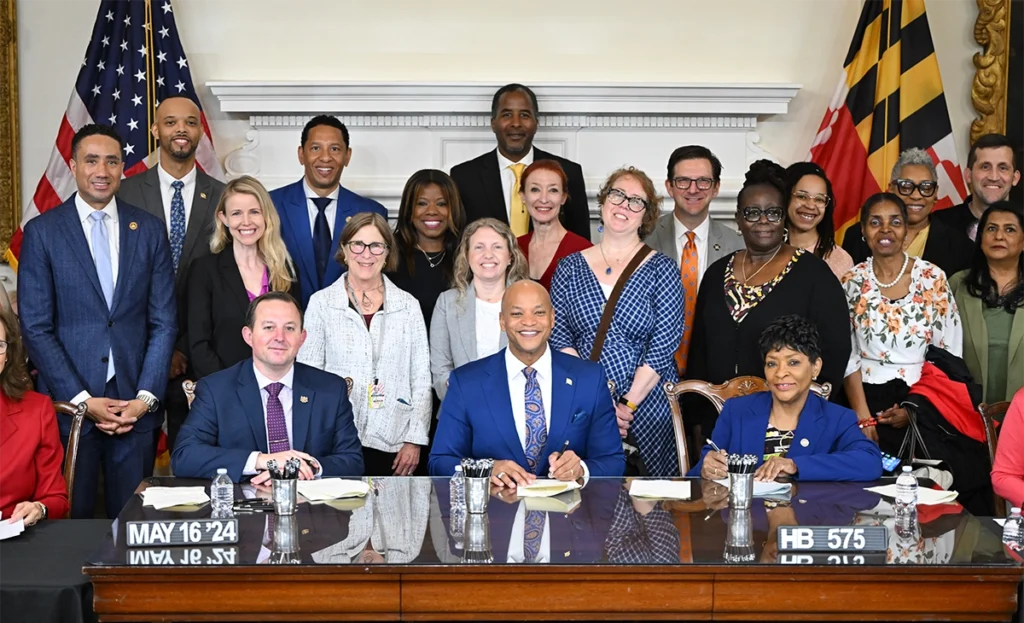Se habla español.
Interpreters available for other languages.
410-706-2781
The ROAR Center is a recognized Center at the University of Maryland, Baltimore

On Thursday, May 16, Lydia Watts of ROAR, along with colleagues from many of our area’s victim’s services organizations, were on hand to witness Governor Moore officially sign the Victim Compensation Reform Act of 2024 into law. Once implemented, this will remove insurmountable barriers and delays that have prevented far too many crime victims from receiving financial support that is their due.
The signing marks the culmination of over five years of effort and collaboration by ROAR; University of Baltimore Law’s Center for Criminal Justice Reform; Justice Policy Institute; Maryland Network to End Domestic Violence; Health Alliance for Violence Intervention, and more, alongside survivors of crime, to help Maryland pass this new model policy for the country.
Victim compensation isn’t just about the healing and dignity of victims; it’s about public safety. Despite its potential, across the country it’s been inaccessible and rife with racial inequity, especially for Black men and youth impacted by gun violence, and for anyone who for many reasons may not trust the police.
The Victim Compensation Reform Act modernizes Maryland’s victims’ compensation program, ensuring that victims of crime get the support they need to recover. Through this legislation, the process of receiving victim’s compensation will be more efficient with the removal of unnecessary barriers, allowing for faster access to compensatory funds to support immediate needs like funeral or emergency relocation expenses.
Among other changes, the Victim Compensation Reform Act of 2024:
Learn more in this moving editorial, A lifeline for Maryland families affected by violent crime like mine, written by our colleague Keith Wallington, director of advocacy at the Justice Policy Institute.